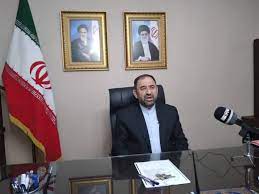Iran’s Ambassador to Damascus, Hussein Akbari, has dismissed the notion that the withdrawal of Iranian Revolutionary Guard commanders from Syria would halt Israeli military strikes. Akbari views such attacks as efforts by Israel to sow discord within the resistance front rather than a response to Iranian presence. He argues that Israel’s aggression is not contingent on the presence of Iranians in Syria, suggesting that the absence of Iranian forces would not lead to a cessation of hostilities, nor would it prompt Israel to make concessions such as returning the Golan Heights or seeking forgiveness.
Akbari characterized the belief in Israel’s potential for peaceful retreat as overly simplistic. He acknowledged the Israeli military’s targeting of residential areas housing Iranian advisors, which resulted in casualties, as part of an attempt to instill fear among Syrians regarding the Iranian presence. Despite this, Akbari highlighted Iran’s significant contributions to Syria, including the presence of Iranian companies and families, and emphasized Iran’s unique position to assist Damascus without regard for U.S. policies.
The Syrian populace, particularly those loyal to the Assad regime, has expressed growing concern over the Iranian military footprint in residential zones. This apprehension stems from an uptick in Israeli airstrikes, particularly those penetrating deep into Damascus, prompting calls for the relocation of Iranian militia bases away from civilian areas. Some residents have gone so far as to resist renting properties to Iranians to avoid turning their homes into military targets.
Criticism of the Assad regime’s alliance with Iran has become increasingly vocal among its supporters, who now publicly denounce the Iranian presence as an occupation contributing to the country’s strife. This sentiment is reflected in social media posts and comments, illustrating a shift in public opinion among regime loyalists. They blame the regime for the proliferation of Iranian influence, which they argue has led to increased vulnerability to Israeli attacks.
This article was translated and edited by The Syrian Observer. The Syrian Observer has not verified the content of this story. Responsibility for the information and views set out in this article lies entirely with the author.


